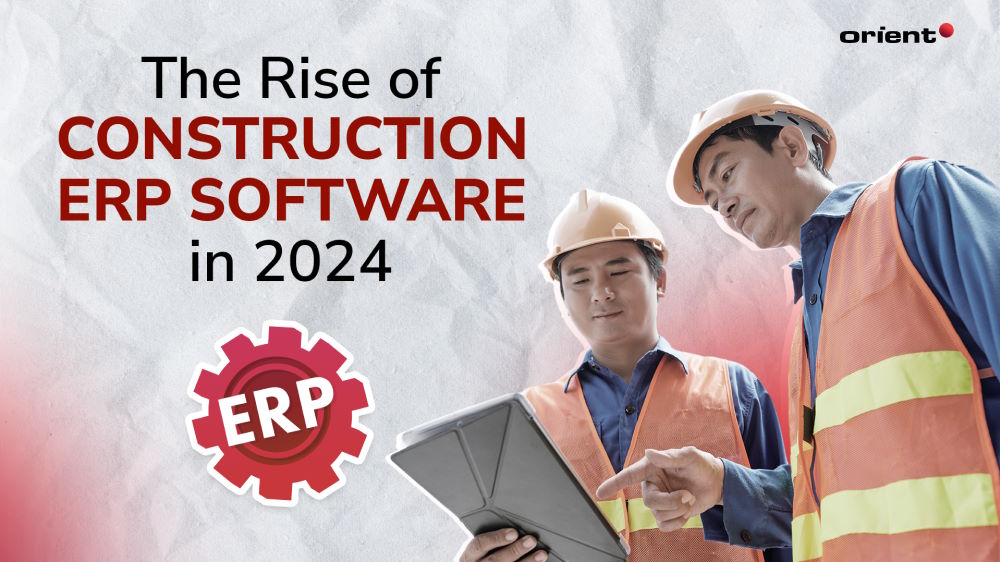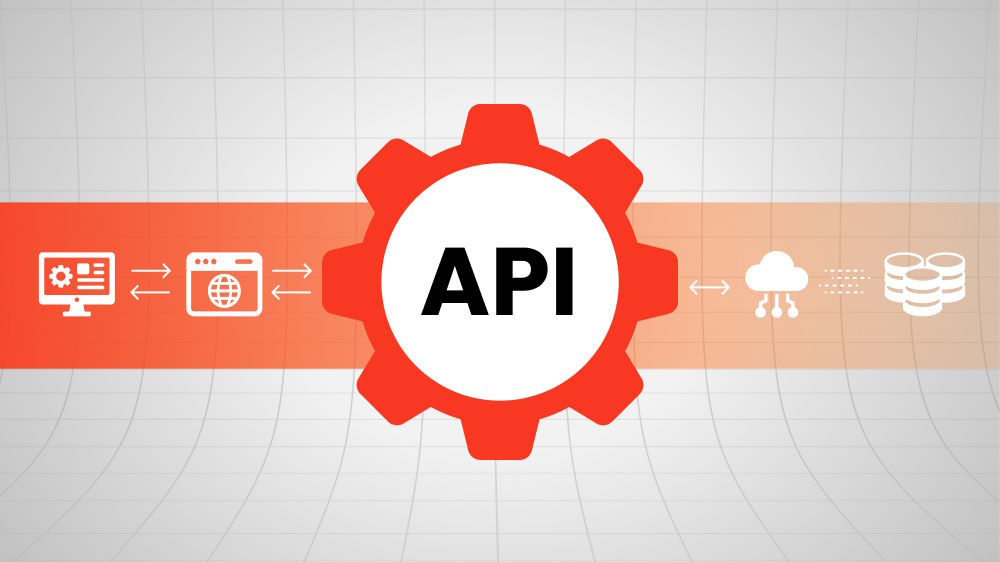The Rise of Construction ERP Software: What to Expect in 2024?

Content Map
More chaptersAre you project managers of construction projects? Have you found your internal communication between different project stakeholders inefficient? Do you face difficulty in cost control? Are you overwhelmed by managing too many manual processes and paperwork? If you are experiencing one of the above problems or any other difficulty, it is time to transform your internal operations with the power of construction ERP software.
Described as integrated end-to-end applications that provide comprehensive solutions for construction companies, ERP systems optimize most business processes, from supply chain management and construction accounting to project planning and customer relationship management.
Different types of modern software do not overshadow ERP solutions tailored for the construction industry today. Conversely, they are becoming increasingly popular due to their integration with new technologies, including business intelligence, big data, IoT, etc. What other news have you missed about this innovative tool?
What Is Construction ERP Software?

Construction ERP software, also known as construction enterprise resource planning software, is a solution designed to manage and streamline multiple aspects of construction project management. Integrated with various processes and functionalities across the organization, ERP acts as a project management tool, allowing businesses to leverage their:
- Financial Management
- Document Management
- Inventory Management
- Sales Management
- Risk Management
- Client Relationship Management
- Accounting and Project Management
By integrating all the above functions into a single system, ERP applications revolutionize the way construction projects are planned, monitored, and executed. ERP software provides real-time data and visibility into every facet of the project, both facilitating effective collaboration among departments and minimizing errors throughout the project lifecycle, thus reducing job costs.
What Challenges May Construction Companies Face without Using ERP Solution?
Businesses can choose to use ERP software for construction or not. However, before deciding further, take a quick look at several challenges a company may face without using one.
Difficulty in Cost Control
Project management in construction projects is more than a daunting task as it brings together countless different complex tasks that consume a lot of company expenses.
Without a centralized system to manage budgets and track expenses in real time, business owners can easily encounter difficulties related to maintaining ROI software/profitability while staying within budgetary constraints. Cost overruns and limited control over project finances are some of the significant causes that negatively affect the performance of other core competencies within a business.
Manual Processes and Data Entry
ERP software allows businesses to automate most processes, including data entry. This means that the absence of such a solution requires company personnel to handle paperwork and repetitive tasks completely depending on the labor-intensive approach, which can hinder overall operational efficiency.
Unlike machines, human strength is limited. Burnout during work may increase the chances of human errors, slow down project timelines, and consume additional resources. Spending time fixing existing bugs leads to duplication of efforts that could otherwise be focused on core activities.
Lack of Integration
There are multiple departments and processes that make up a complete construction company. With a variety of unique job characteristics, individuals belonging to different departments easily fall into the tendency to work independently and lack connection without using support applications such as communication tools or ERP software.
Data silos were born for the above reason. The lack of integration and data silos can potentially lead to data discrepancies, difficulty in tracking project progress, and delays in decision-making.
Inefficient Communication
As a centralized platform with countless features to support employees throughout the product life cycle, where all project-related information is accessed by authorized personnel, ERP software clearly demonstrates its strength in bridging the gaps between departments.
Without an ERP system, businesses typically rely on manual methods such as phone calls, emails, or in-person meetings. While these traditional means of communication are still effective in some ways for startups and small businesses, they can be prone to miscommunication and time-consuming. In particular, conveying critical project information through conventional methods makes it difficult to ensure that stakeholders are on the same page and perform tasks as required.
What Indications Form an Appropriate ERP System?

There is no single concept that defines perfection. While this construction ERP software suits well with your organization, it may not be an optimal choice for others. Indicators for an appropriate ERP solution customized for the construction industry can vary depending on one business’s needs. However, there are still some general indicators for your reference.
Comprehensive Project Management
ERP software is a solution designed to streamline most project-related aspects. Therefore, features serving project management are considered indicators that play the most important role and are the premise of a reliable ERP system.
Not only covering a few functions, but an appropriate ERP solution for construction companies should also have robust and large project management capabilities. It would be great if it enabled efficient planning, scheduling, resource allocation, and progress tracking across multiple projects.
Customization for the Construction Industry
There is no shortage of ERP software options on the market. However, the characteristics of the construction niche require such software products to have some specialized customization. Instead of running into a random popular ERP solution available, businesses should wisely choose ERP systems specifically designed for the construction industry.
There are several features that are unique to construction ERP software and may not be found in general ones. For example, subcontractor management or CAD (Computer-Aided Design) integration capabilities are features that usually only appear in specialized construction ERP software. Customized modules and functionalities tailored to construction businesses’ unique needs can enhance productivity and efficiency.
Where an ERP app does not contain fixed features for construction activities, the ability to allow customization based on specific requirements is also a big plus.
Integration with Construction Processes
On-the-shelf ERP solutions often require seamless integration with existing operational systems to begin optimizing and transforming construction businesses. However, not all ERP apps support this feature, especially legacy ones.
Legacy ERP systems may lack modern integration capabilities, resulting in a lack of data sharing, inefficient communication, and uneven use of technology within construction companies. Garment businesses struggle to handle the smooth flow of information across different processes such as bidding, procurement, billing, and payroll if using an outdated ERP app.
Scalability and Flexibility
Your business grows continuously every year. That’s why you need to choose an ERP system that can scale with your business growth and easily adapt to changing needs. So, what counts as an ERP solution with a high level of scalability and flexibility?
Scalable construction ERP software is software that has the capacity to accommodate increased data volumes and additional users based on growing organizational demands. It should offer customization options that can be tailored to evolving market conditions, regulatory changes, and emerging technologies to adapt promptly to the dynamic construction industry.
Transform Your Construction Business with the Top 4 ERP Software
Panorama Consulting Group’s report revealed that 62% of businesses experienced improved company growth, while 65% saw a boost in operational efficiency as a result of ERP. This data proves the outstanding benefits that ERP software brings to businesses regardless of size.
If you are in the middle of nowhere on your journey to finding the best construction ERP software, the list below may shed some light on you.
Acumatica
Acumatica is a cloud-based enterprise resource planning (ERP) software that offers a comprehensive suite of integrated solutions and modules to streamline various business processes, including construction. With the outstanding feature of cloud-based architecture, Acumatica allows users to access the system from anywhere, at any time, as long as there is an Internet connection.
By blending real-world functionality with the latest business intelligence technology, this construction ERP software leverages real-time data and enhances features such as project accounting, financial management, inventory management, etc. Businesses can now track project costs and control fulfillment capabilities easily in a snap. Its flexibility, scalability, and user-friendly interface make Acumatica a suitable option for small to mid-sized businesses across various industries.
Viewpoint
Viewpoint ERP software is a solution specifically for individuals and businesses in the construction industry who need to optimize operations, improve project visibility, and enhance collaboration between departments. This application provides various functions for construction management, including field operations, resource planning, project management, equipment management, and accounting.
Viewpoint is built with customization and security in mind, helping clients tailor the system to their needs while ensuring project and user information security. With nearly 8,000 construction companies worldwide using Viewpoint, it is considered one of the leading providers in the industry.
Sage
Sage ERP software is an enterprise resource planning solution offered by Sage, a leading provider of business management software. Unlike some other systems out there on the market today, Sage offers a range of ERP solutions to cater to companies of different sizes and industries, namely, Sage X3 (formerly known as Sage ERP X3), Sage Intacct ERP, and others.
Regardless of the type of ERP solution used, Sage delivers functionality and efficiency into businesses’ daily activities, bringing overall efficiency to the project and related processes. Users can use this tool to optimize their supply chain processes, share data across different platforms, analyze data, and generate reports.
Procore
More than a tool for managing tasks, Procore construction management software transforms the way construction businesses operate. By allowing users to connect the Procore platform with other ERP systems, such as Viewpoint Spectrum, Viewpoint Vista, and Acumatica Cloud ERP, construction companies get real-time data used for project management and accounting processes, thus enhancing overall project visibility and control.
Recently, Procore launched a new feature allowing users to control the financial health of construction projects. Based on up-to-date data, businesses can easily track project costs, monitor financial performance, and make informed decisions to suit each stage of the project.
There is no general formula to make a perfect construction ERP software. If the off-the-shelf solutions on the market cannot entirely solve the existing problem in your construction business, consider building your own one and freely customize it as you like.
Our custom software development service is ready to make your mere concept a reality. Contact Orient Software for free price estimation.







